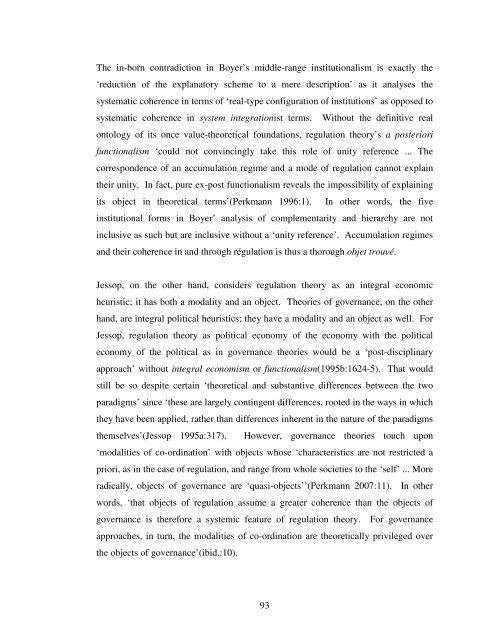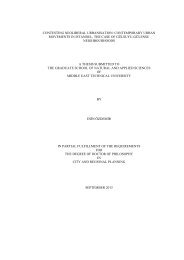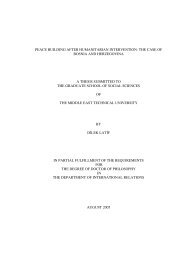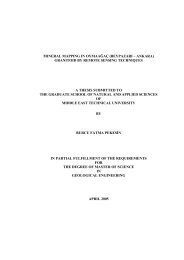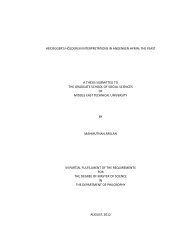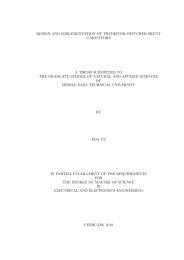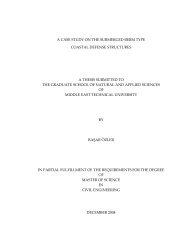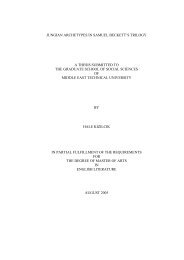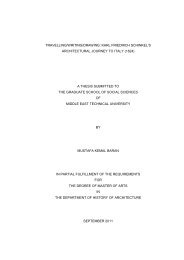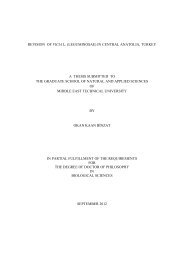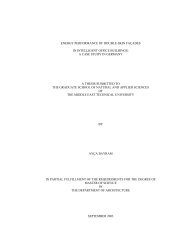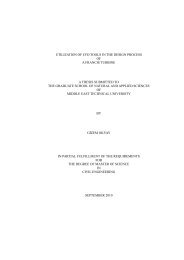View Original - Middle East Technical University
View Original - Middle East Technical University
View Original - Middle East Technical University
You also want an ePaper? Increase the reach of your titles
YUMPU automatically turns print PDFs into web optimized ePapers that Google loves.
The in-born contradiction in Boyer’s middle-range institutionalism is exactly the<br />
‘reduction of the explanatory scheme to a mere description’ as it analyses the<br />
systematic coherence in terms of ‘real-type configuration of institutions’ as opposed to<br />
systematic coherence in system integrationist terms. Without the definitive real<br />
ontology of its once value-theoretical foundations, regulation theory’s a posteriori<br />
functionalism ‘could not convincingly take this role of unity reference ... The<br />
correspondence of an accumulation regime and a mode of regulation cannot explain<br />
their unity. In fact, pure ex-post functionalism reveals the impossibility of explaining<br />
its object in theoretical terms’(Perkmann 1996:1). In other words, the five<br />
institutional forms in Boyer’ analysis of complementarity and hierarchy are not<br />
inclusive as such but are inclusive without a ‘unity reference’. Accumulation regimes<br />
and their coherence in and through régulation is thus a thorough objet trouvé.<br />
Jessop, on the other hand, considers regulation theory as an integral economic<br />
heuristic; it has both a modality and an object. Theories of governance, on the other<br />
hand, are integral political heuristics; they have a modality and an object as well. For<br />
Jessop, regulation theory as political economy of the economy with the political<br />
economy of the political as in governance theories would be a ‘post-disciplinary<br />
approach’ without integral economism or functionalism(1995b:1624-5). That would<br />
still be so despite certain ‘theoretical and substantive differences between the two<br />
paradigms’ since ‘these are largely contingent differences, rooted in the ways in which<br />
they have been applied, rather than differences inherent in the nature of the paradigms<br />
themselves’(Jessop 1995a:317). However, governance theories touch upon<br />
‘modalities of co-ordination’ with objects whose ‘characteristics are not restricted a<br />
priori, as in the case of regulation, and range from whole societies to the ‘self’ ... More<br />
radically, objects of governance are ‘quasi-objects’’(Perkmann 2007:11). In other<br />
words, ‘that objects of regulation assume a greater coherence than the objects of<br />
governance is therefore a systemic feature of regulation theory. For governance<br />
approaches, in turn, the modalities of co-ordination are theoretically privileged over<br />
the objects of governance’(ibid.:10).<br />
93


